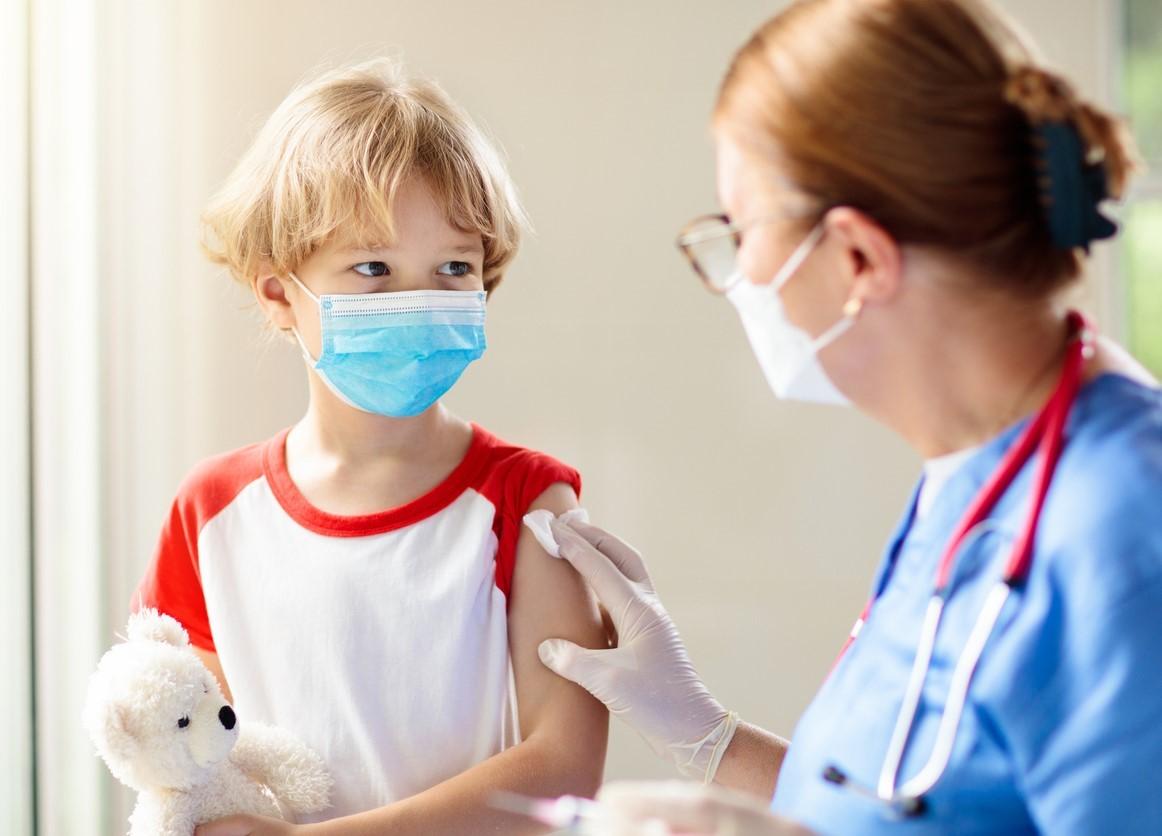The effectiveness of two doses of the Pfizer/BioNTech COVID-19 vaccine against hospitalization for infections with the highly transmissible Omicron variant was 40% among adolescents 12 to 18 years and 68% among children aged 5 to 11, finds a test-negative study published yesterday in the New England Journal of Medicine (NEJM).
Led by the Centers for Disease Control and Prevention's (CDC's) COVID-19 Response Team, the study involved 1,185 COVID-19 patients admitted to 31 US pediatric hospitals and 1,627 controls aged 5 to 18 years admitted for other indications. The 918 adolescents were enrolled from Jul 1 to Dec 18, 2021 (Delta variant era) and from Dec 19, 2021, to Feb 17, 2022 (Omicron era).
The 267 children aged 5 to 11 were enrolled only during the Omicron period because the Pfizer vaccine wasn't authorized for that age-group until October 2021. Owing to insufficient numbers of severely ill patients in this age-group, VE against critical illness—defined as those who required life support, such as mechanical ventilation—couldn't be evaluated.
92% effective in teens for up to 10 months
Among the 1,185 total hospitalized patients, 1,043 (88%) were unvaccinated, 291 (25%) required life support, and 14 (1.2%) died.
Of 12- to 18-year-olds, 87% were unvaccinated, 27% were critically ill, of whom 2% needed extracorporeal membrane oxygenation (ECMO) (93% of them were unvaccinated), and 13 died. Among children 5 to 11 years, 92% were unvaccinated and 16% needed life support (90% unvaccinated), including 2 who required ECMO and 1 who died.
Vaccine effectiveness (VE) of two doses of the Pfizer vaccine given at least 14 days earlier against COVID-19 hospitalization among 12- to 18-year-olds in the Delta-dominant period was 93% (95% confidence interval [CI], 89% to 95%) 2 to 22 weeks after vaccination and 92% (95% CI, 80% to 97%) at 23 to 44 weeks.
In the Omicron-dominant period, VE was 40% (95% CI, 9% to 60%) against hospitalization, 79% (95% CI, 51% to 91%) against critical COVID-19, and 20% (95% CI, −25% to 49%) against noncritical illness among 12- to 18-year-olds after a median interval of 162 days since vaccination. Among patients aged 5 to 11, VE against Omicron hospitalization was 68% (95% CI, 42% to 82%) at a median of 34 days after vaccination.
"Continued monitoring of vaccine effectiveness against severe Covid-19 will be important to inform vaccination strategies as the time since vaccination increases or if new SARS-CoV-2 variants emerge," the study authors concluded.
Only 57% of teens, 27% of kids vaccinated
In a Boston Children's Hospital news release, senior author Adrienne Randolph, MD, said that COVID-19 vaccines are designed to avert severe complications such as hospitalization. "This evidence shows that vaccination reduces this risk substantially in 5- to 11-year-olds," she wrote. "And while vaccination provided adolescents with lower protection against hospitalization with omicron versus delta, it prevented critical illness from both variants."
As of Mar 16, 2022, the researchers said, only 57% of 12- to 18-year-olds and 27% of those aged 5 to 11 had received two Pfizer doses.
"We hope our findings will help parents make the decision to vaccinate their children and teens against COVID-19," Randolph said. "The benefits clearly outweigh the risks, as severe infections in childhood can have long-term consequences."
In a NEJM audio interview, Eric Rubin, MD, PhD, editor-in chief, and Deputy Editor Lindsey Baden, MD, said the findings are in line with what has been seen in vaccinated adults. "Vaccines are best at protecting against variants that are most similar to the vaccine strains like the Delta variant and not as good against less-similar strains like Omicron, and they work best against severe illness" Rubin said.
Baden pointed out that that COVID-19 vaccine side effects are very rare.
"In my own reflection on this, the risk of a one-in-a-million or very rare side effect—be it the myocarditis or the anaphylaxis or some of these considerations which are still hard to understand given their rarity—versus the clear benefits of protecting against the illness, makes it a very easy decision," he said.




















